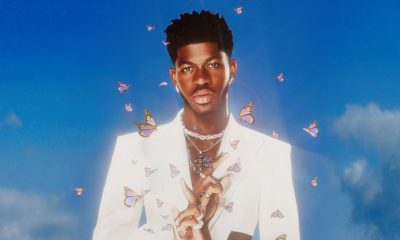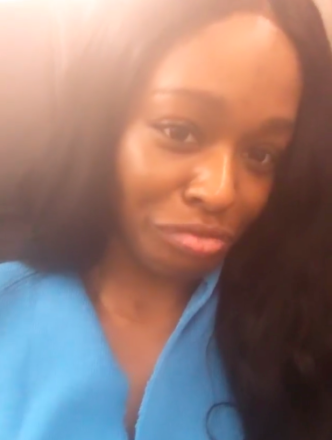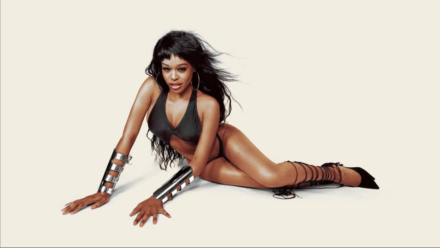Music & Concerts
Frank Ocean goes ‘Blond’
Genre-defying album one of year’s best so far
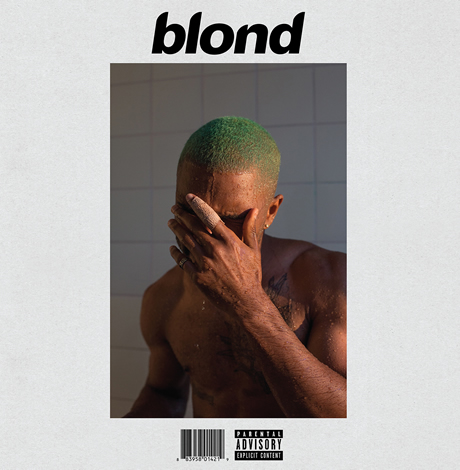
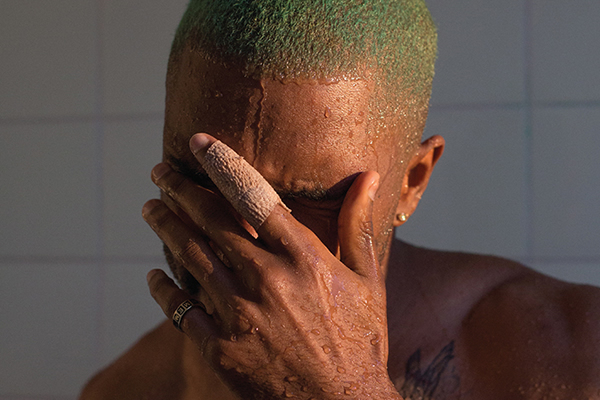
Frank Ocean took his time with his sophomore album but the wait paid off. (Photo courtesy Boys Don’t Cry)
Anticipation for new Frank Ocean studio material has been so frenzied that somehow it seems longer than just four years since his celebrated 2012 debut “Channel Orange” heralded his arrival as a major creative force.
That brilliant soul/hip-hop hybrid includes the heartrending ballad “Bad Religion,” about forbidden, unrequited love that a closeted young man feels for a male friend. The track, in tandem with Ocean’s startling public candor about his attraction to men, created a stir for both his bravery in a sub-genre often viewed as being less than tolerant toward homosexuality (although support for Ocean far eclipsed any negative outcry) as well as for its riveting honesty. The genre-tripping collection, also highlighted by marvelous gems such as “Pyramids” and “Monks,” was hailed by critics and fans as a masterpiece and it landed on many year-end “best of” 2012 lists.
Speculation over Ocean’s next move has been almost obsessive. Every hint, comment and potential clue about the follow-up to “Channel Orange” launched a mixture of feverish anticipation and consternation by fans battling impatience while salivating over the prospect of hearing what Ocean would turn out next. Ocean finally ended the long wait with a pair of strong projects: a visual album called “Endless” that dropped on Aug. 19, and the breathlessly awaited new studio release, “Blonde,” on the following day. Despite being defiantly non-commercial in every sense of the word — there’s not a strong pop radio hook to be found — “Blonde” has already achieved massive success, shooting straight to No. 1 on the Billboard Top 200 album chart.
It’s interesting to note that Ocean surrounds himself with a bevy of diverse collaborators on “Blonde” and, despite this, the album has been almost universally acclaimed by critics and revered by “serious” music fans since its release. Early this year Beyoncé’s similarly vast list of contributors on “Lemonade” was viewed by some vocal critics as tacit proof that the singer is merely a pop diva propped up by those with the “real talent.” This double standard is curious, and yet not so — obvious sexism, with men often afforded more respect for their talent, has been rampant in popular music from the beginning. “Lemonade” and “Blonde” couldn’t be more different sonically and thematically, but both are bold and uncompromising works that challenge listeners and raise the bar on what standard popular music produced for mass consumption can be.
Let there be no doubt, “Blonde” is a triumph. Although the endless perfectionism that led to its long gestation may be frustrating for fans, it’s difficult to argue that the end result does not justify Ocean’s meticulous attention to detail. His downtempo, idiosyncratically structured compositions fall between the cracks of any traditionally definable genre. The overall vibe is that of fragmented dreams, an intimate night of mind travel that’s languid and shrouded in smoke, mellow and contemplative but also immediate and emotionally potent.
Frank Ocean is one of those rare artists with a singular voice, a unique and immediately identifiable sound that is boundlessly original yet wears its influences and forebearers on its sleeve (think R&B greats like Prince, Stevie Wonder, D’Angelo and Bill Withers merged with hip-hop pioneers like De La Soul punctured with other sonic excursions as diverse as the Beatles and Radiohead). His hypnotic tone poems wander in unexpected directions, looping a kaleidoscope of sounds, samples and vocal effects with complete disregard for the confining lines of standard pop, R&B or hip-hop. “Blonde” is not a flashy album — it’s low key, personal and obviously a work of intense importance for the artist. It’s deeply absorbing and rewarding, with tracks like lead single “Nikes,” “Pink + White,” “Self Control” and the epic closer “Futura Free” among the high points. It’s hardly about the individual tracks, though. “Blonde” is an experience, a continuous journey that’s fascinating to hear unfold. It rewards repeated and careful listens, great headphones and a wide open mind of musical curiosity.
Music & Concerts
Washington chorale kicks off Christmas with vibrant program
‘Thine Own Sweet Light’ concerts planned
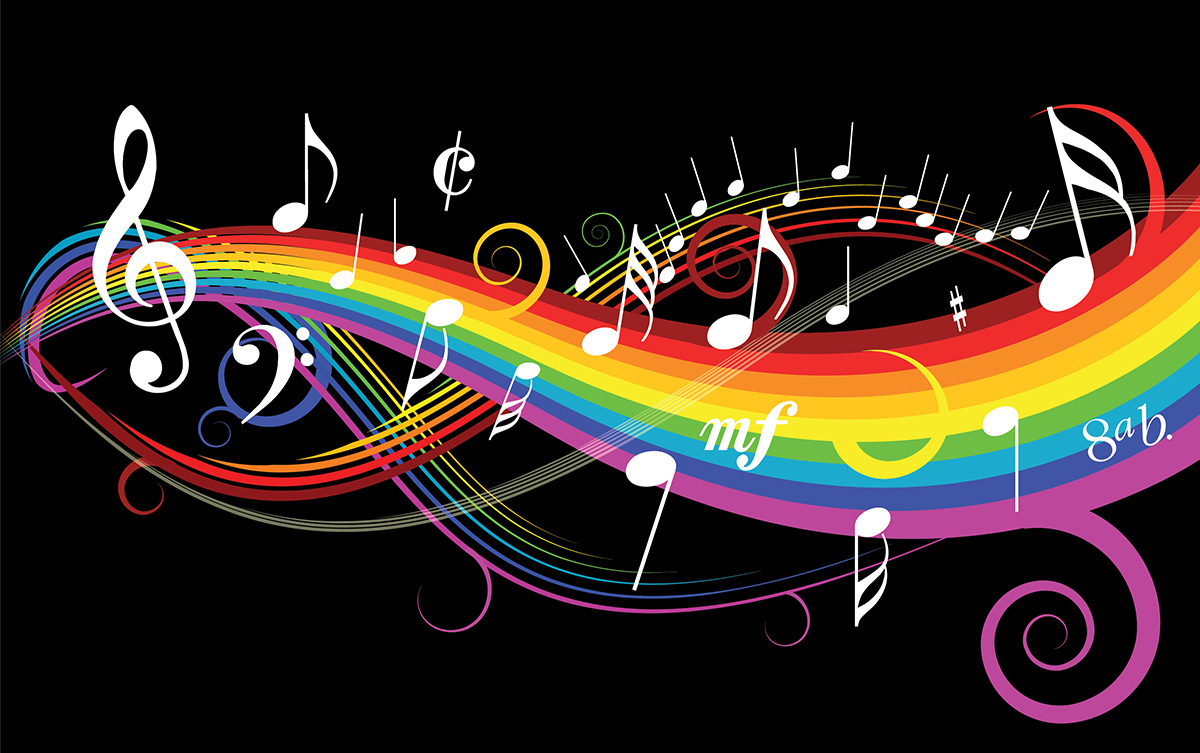
The full Washington Master Chorale will return for its annual holiday concert tradition with “Thine Own Sweet Light” on Friday, Dec. 19 and Sunday, Dec. 21 at St. Ann’s Catholic Church (D.C.) and Church of the Epiphany (D.C.).
The concert will feature the rich sounds of the 50-voice, a cappella chorus performing lush, seasonal choral music inspired by the theme of light. Highlights include Edvard Grieg’s “Ave Maris Stella,” Eric Whitacre’s “Lux Aurumque,” and Christopher Hoh’s “Holy, Holy, Holy is the Lord God of Hosts.” The program will also present a new work by Barcelona composer Josep Ollé i Sabaté, along with charming holiday folk songs and seasonal favorites.
For more details, visit the Washington Master Chorale website.
Music & Concerts
Queer mega stars (and allies) ready to take D.C. stages this fall
Watch LGBTQ icons light up stages across the DMV as they sing, dance, and drag their way through spectacular shows.
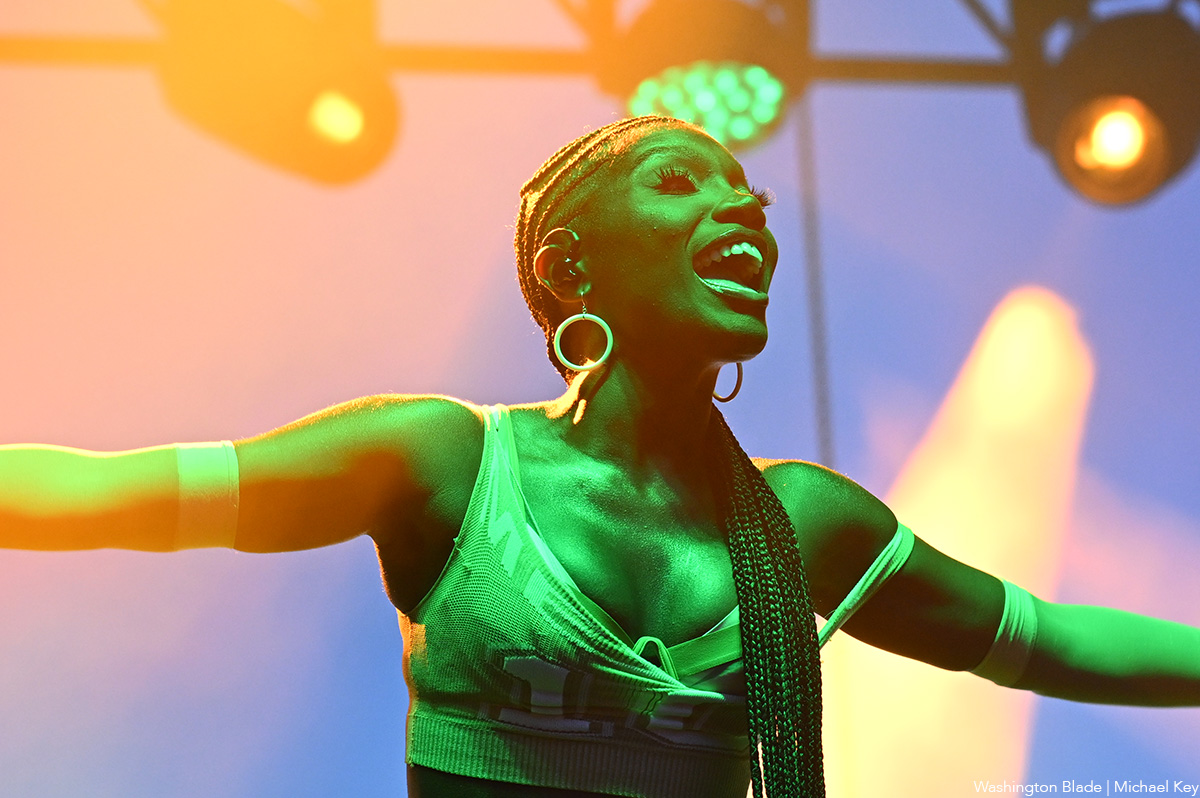
One of the best ways to welcome fall is by catching LGBTQ performers (and their allies) lighting up some of the D.C. area’s biggest stages. From country and pop to drag and rock, the season is packed with shows you won’t want to miss.
Maren Morris – The country, rock, and pop diva—known for hits like “The Bones” and for standing up against Nashville’s anti-LGBTQ voices—takes the stage at Wolf Trap (1551 Trap Rd, Vienna, Va.) on Friday, Sept. 12 at 8 p.m. Tickets start at $64.
RuPaul – The mother of modern drag and host of “RuPaul’s Drag Race” will spin a DJ set at Echostage (2135 Queens Chapel Rd NE) in Northeast D.C. on Sept. 20. Before RuPaul swaps wigs for headphones, Trade and Number 9 owner Ed Bailey will warm up the decks. For tickets and details visit echostage.com.
Conan Gray – The queer pop prince, celebrated for his Gen Z anthems like “Heather” and “Maniac,” brings his Wishbone Pajama Show to EagleBank Arena in Fairfax, VA, (4500 Patriot Cir) on Sept. 20 at 8 p.m. Tickets start at $113. For more info visit shop.conangray.com/pages/tour.
All Things Go Music Festival – With a lineup that includes Noah Kahan, Lucy Dacus, Kesha, Clairo, Doechii, and more, the beloved LGBTQ-friendly festival takes over Merriweather Post Pavilion (10475 Little Patuxent Pkwy, Columbia, Md.) Sept. 26–28. For tickets and details visit allthingsgofestival.com.
BERTHA: Grateful Drag – This unique tribute brings drag artistry and the sounds of the Grateful Dead to The Atlantis (2047 9th St NW) on Sept. 27. Tickets start at $47 at theatlantis.com.
Peach PRC – Rising Australian pop star and out lesbian, whose confessional tracks like “Perfect for You” and “Forever Drunk” have made her a queer TikTok darling, performs at The Atlantis on Sept. 29 at 6:30 p.m. The show is general admission only. Additional details are on theatlantis.com.
Addison Rae – The TikTok star-turned-pop princess, who’s crossed over into music with glossy hits like “Diet Pepsi” brings her sold out show to The Anthem (901 Wharf St., S.W.) on Sept. 30. Tickets are sold out, but resale options start around $80. For more info visit theanthemdc.com.
The Rocky Horror Picture Show 50th Anniversary – Celebrate the cult classic that’s been a queer midnight-movie staple for decades, with Barry Bostwick (a.k.a. Brad Majors) at the Warner Theatre (513 13th St., N.W.) on Oct. 2 at 8 p.m. Tickets start at $41 via Ticketmaster.
Chaka Khan, Patti LaBelle, Gladys Knight & Stephanie Mills – Four legends, one stage. Between Khan’s funk, LaBelle’s soul, Knight’s R&B, and Mills’ powerhouse vocals, this concert at Capital One Arena (601 F St NW) on Oct. 3 at 8 p.m. promises pure diva magic. Tickets start at $103. For more details visit capitalonearena.com.
Lorde – Joined by The Japanese House and Chanel Beads, the Grammy-winning New Zealand singer-songwriter behind “Royals” and “Solar Power” returns to The Anthem on Oct. 4 at 7 p.m. Lorde has long been embraced by queer fans for her dreamy pop and subversive lyrics. For more info visit theanthemdc.com.
Andy Bell (of Erasure) – The British queer rock icon, best known for synth-pop classics like “A Little Respect” and “Chains of Love,” brings his Ten Crowns Tour to the Lincoln Theatre (1215 U St., N.W.) on Friday, Oct. 17 at 8 p.m. Tickets are $90.45.
Doechii – The self-described queer “Swamp Princess”—and WorldPride 2025 headliner—continues her breakout year with the Live from the Swamp Tour at The Anthem on Oct. 21 at 8 p.m. Known for blending rap, R&B, and avant-garde performance art, Doechii is one to watch. Tickets start at $153.
Neon Trees – The out-and-proud Utah rockers behind “Everybody Talks” and “Animal” perform at the Lincoln Theatre on Friday, Oct. 24 at 8 p.m. Lead singer Tyler Glenn, who came out publicly in 2014, has become a strong queer voice in alternative rock. For tickets and info visit impconcerts.com.
Sasha Colby – The “RuPaul’s Drag Race” Season 15 winner strips down on the Stripped II Tour at the Warner Theatre on Nov. 2 at 8 p.m. Tickets available now on Ticketmaster.
Lola Young – The bisexual indie-pop sensation, whose raw songwriting has earned her millions of TikTok fans and multiple chart soaring hits visits The Anthem on Nov. 9 at 8 p.m. Tickets are still available.
Opera Lafayette
Featuring Mary Elizabeth Williams as Dido
+ Elijah McCormack, Chelsea Helm
Oct. 16, 7:30 p.m.
Sixth & I
PostClassical Ensemble
The Pale Blue Do: A Musical Voyage Inspired By Nature
Featuring National Geographic’s Enric Sala, Guest Curator
Wednesday, November 19, 7:30 p.m.
Terrace Theater
Washington Concert Opera
Starring Kate Lindsey, Theo Hoffman, John Moore, and Fran Daniel Laucerica
Nov. 23, 6 p.m.
Lisner Auditorium
Washington Master Chorale
An intimate a capella concert taking place in an architectural jewel, featuring cherished choral gems from Anglican and Catholic tradition and early American hymns. The concert will also present the world premiere of Christopher Hoh’s Holy, Holy, Holy is the Lord God of Hosts, and hymn singing featuring Robert Church, organist and choirmaster at St David’s.
Oct. 18, 7:30 p.m.
October 19, 5 p.m.
St. David’s Episcopal Church
Music & Concerts
Cyndi Lauper ready to have fun in Virginia
Superstar to bring final leg of farewell tour to Jiffy Lube Live
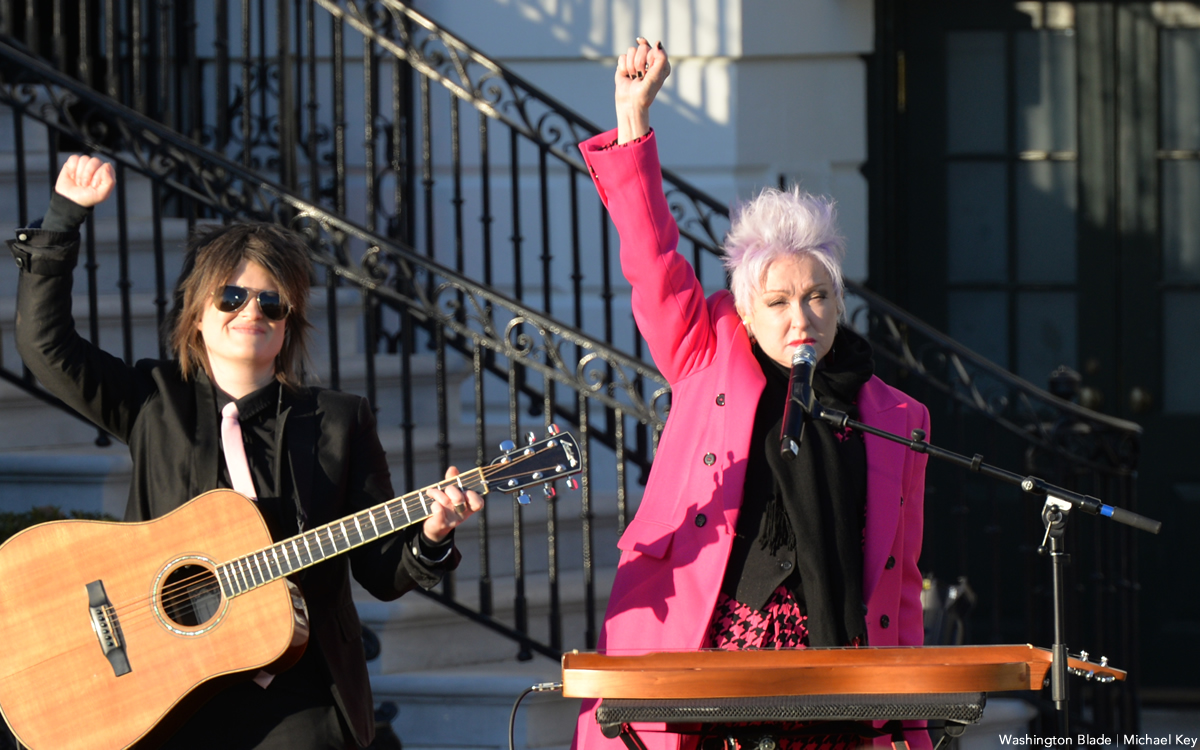
Superstar Cyndi Lauper will bring the final leg of her farewell tour “Girls Just Wanna Have Fun” to Bristow, Va., on Thursday, July 24 at Jiffy Lube Live.
Lauper’s international Farewell Tour – her first major headlining run in a decade – kicked off in North America last October, and included her first time ever headlining (and selling out) Madison Square Garden. Lauper’s performances have earned raves from the New York Times, Rolling Stone, Billboard, and many more, and surprise guests have included Chaka Khan, Sam Smith, and Hayley Williams. The tour just visited the U.K. and Europe, and will head to Australia and Japan in April.
Tickets are available on Live Nation’s website.
-

 National4 days ago
National4 days agoWhat to watch for in 2026: midterms, Supreme Court, and more
-

 District of Columbia5 days ago
District of Columbia5 days agoTwo pioneering gay journalists to speak at Thursday event
-

 Colombia4 days ago
Colombia4 days agoBlade travels to Colombia after U.S. forces seize Maduro in Venezuela
-

 a&e features5 days ago
a&e features5 days agoQueer highlights of the 2026 Critics Choice Awards: Aunt Gladys, that ‘Heated Rivalry’ shoutout and more

